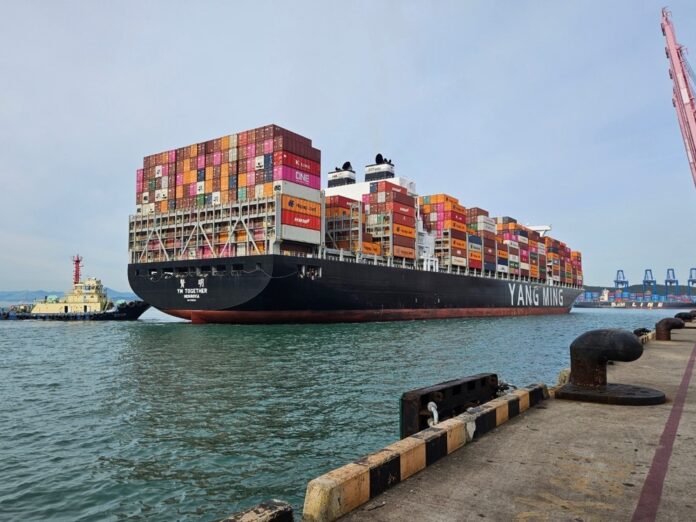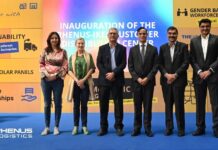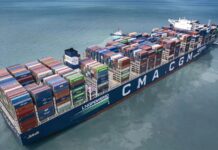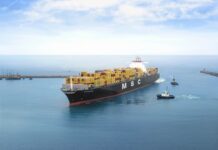
Starting this year, Yang Ming Marine Transport Corporation (Yang Ming) is beginning to fuel its fleet with sustainable biofuel. This initiative aims to implement the Company’s sustainable development strategy, achieve net-zero emissions by 2050, and provide low-carbon transportation services to customers. YM Together, the 11,000-TEU container ship, recently became the first foreign-flagged vessel in South Korea to bunker biofuel, marking the Company’s steady progress in sustainable development and energy transition.
Currently serving the Trans-Pacific route PN3, YM Together bunkered B30 HSFO biofuel at Pusan Port, South Korea, on June 26, in collaboration with KPI OceanConnect, a leading global provider of marine energy solutions, and GS Caltex, a major refiner and a pioneer in biofuel delivery in South Korea. This type of biofuel is a blend comprising used cooking oil methyl esters (UCOME), which complies with ISO 8217 and meets International Sustainability & Carbon Certification (ISCC) standards. This biofuel also meets the green fuel standards of the FuelEU Maritime Initiative, reducing up to 25% of GHG emissions than conventional marine fuels. Apart from biofuel, onboard facilities such as scrubbers and shore power systems (AMP) enable YM Together to effectively cut GHG emissions and offer customers transport services that are sustainable and environmentally friendly. Adding Pusan port as a biofuel bunkering port in Asia increases flexibility in bunkering options for different routes, which in turn helps Yang Ming expand the use of biofuel. In the meantime, the Company is providing biofuel usage data requested by a publicly-owned local research institute in South Korea, hoping to accelerate the sustainable goal of energy transition in the industry by sharing practical experiences and contributing to academic research.
In response to the impact of global climate change, Yang Ming is carrying out various energy-saving measures in its operations to improve the fleet’s energy efficiency. These measures include retrofitting existing ships for energy efficiency, adopting smart technology to enhance onboard energy monitoring, using weather routing systems to optimize routes and reduce fuel consumption, and fitting vessels with AMP systems for shore power. In 2023, Yang Ming’s fleet reduced carbon intensity by 61.86% compared to the baseline year of 2008, achieving the IMO’s goal of a 40% reduction by 2030 ahead of time. Looking forward, Yang Ming will continue using ISCC-certified biofuel to cap its total yearly GHG emissions, reduce the pressure of carbon emissions on customers and the entire supply chains, and sail towards the net-zero goal of maritime transport.
อัพเดตข่าวสารและบทความที่น่าสนใจในอุตสาหกรรมโลจิสติกส์ก่อนใคร ผ่าน Line Official Account @Logistics Mananger เพียงเพิ่มเราเป็นเพื่อน @Logistics Manager หรือคลิกที่นี่












